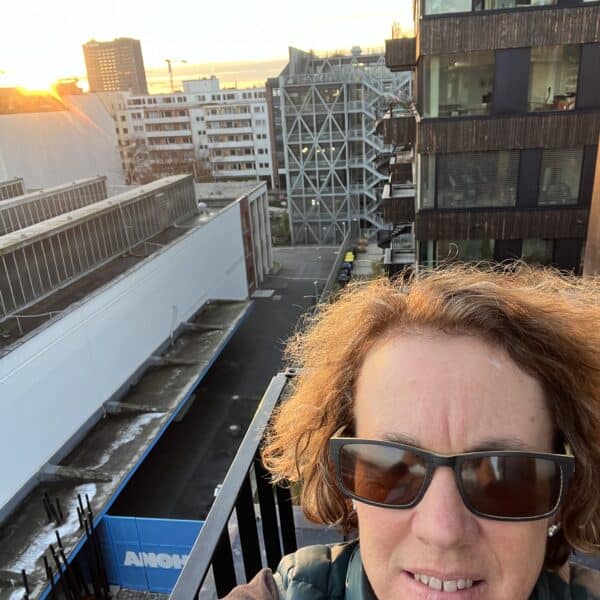story and photos by Tricia Dewey
Who does not love the idea of a tiny house all to themselves, especially now? Kayla Gore, executive director of My Sistah’s House, and her board came up with the idea of placing multiple tiny houses throughout Memphis for transgender people as a way to solve the housing and other problems faced by this community. In particular, transgender people are often refused access to emergency homeless shelters and now with COVID issues many transgender people have difficulty finding spaces to safely isolate. A “housing first” strategy would stabilize their living situation and then make it possible to begin to address other problems in the transgender community like unemployment, access to health care, and victimization. Gore and her advisory board and other folks involved with the day-to-day operations at My Sistah’s House are working toward this solution.
In 2018, Gore and co- founder Ellyhnna Christina- Wattshall established My Sistah’s House, a sanctuary for transgender people, in a similar way. She was invited to participate in Memphis Vagina Monologues, an annual benefit for Planned Parenthood. After Gore shared her story about being homeless and transitioning in Memphis the CFO of Planned Parenthood suggested that she look into buying a house. “I thought, wow, that’s super innovative, I haven’t thought about that. But there’s huge barriers for home ownership for black and brown people and you add on that I’m trans and it’s almost impossible.” Not long afterward, she heard a radio ad about purchasing homes that made it sound simple. “From what they said I met the qualifications….So I set up an appointment with one of the housing development corporations here in Memphis, The Works, who supplied me with my loan to purchase the house that we’re in now.”
That experience of establishing My Sistah’s House and innovations like finding funds to house folks off site in hotels made her and others think that the tiny house project could work. “That was like an eye opener for us,” she said, “because we were really thinking we’re actually doing this, we’re making change. We’re providing a safe space for folks when they’re in uncertain times.”
Then they got to work researching tiny home affordability. “We found some models of homes, some shells of homes, that were pretty reasonably priced from $5-7000 including windows, doors, and floors. And we started putting together other costs, just dreaming really and decided to post a GoFundMe.” That was June 10. By the second day it jumped to $17,000 and then each day it increased $20- or 30,000 a day. By early August it was close to $290,000. “I think a lot of people believe in the vision. I think a lot of people support the work that I’ve done here locally, regionally, and nationally and that exposure that I’ve received over the years adds up to that.” Since the GoFundMe, Gore has had national news attention from NBC and The Daily Beast and from several local stations. This notice has also brought in needed sweat equity to the transgender cause. “We’ve had an influx of volunteers who are helping us with a lot of our capacity needs because before this campaign started our yearly budget was $37,000…. All of our staff is volunteer/ unpaid, everything is volunteer run.”
“The initial idea was literally we could purchase two or three tiny homes, the shell, and build them in the backyard [of My Sistah’s House], and we could provide extra housing. We were thinking of all different kinds of ways to reduce the homelessness in Memphis and increase safety and security for folks.” The speed at which the campaign has raised money was not expected but Gore is ready to move forward. At one point they were under contract for a large land parcel that could contain 20 tiny houses, but they have had to adjust because that land was designated as wetland. Currently the project is slated for several different parcels throughout the city with one closing scheduled for mid- August. They hope to start with two tiny houses on the first parcel and build on that model.

Gore and company are working with architectural firm DKGR, from Indianapolis, who reached out after seeing her story in an interview. “We are hoping to have phase 1 done by December, which would be three houses completely finished inside and out.” DKGR is researching some off-the- grid options to see what’s feasible and what would reduce costs for tenants. According to Gore, tenants have already been identified. “We’re going to utilize folks who have already been through our housing program, who accessed any of our services because we do keep contact information. We have a list of over 300 people who have received services from us, who identify as trans here in Memphis and Shelby County. We do have a few people, five people who we have already had conversations with. And they will be the first five people to be housed in our phase 1 of the project. Those people are more vulnerable, when it comes to anti-trans violence and things like that. They are older, have underlying health issues, which makes us want to make sure that they get access to these houses first.”
Tiny houses are ready to flourish around town. As Gore says, “The project is coming together very organically. We couldn’t be happier.”




